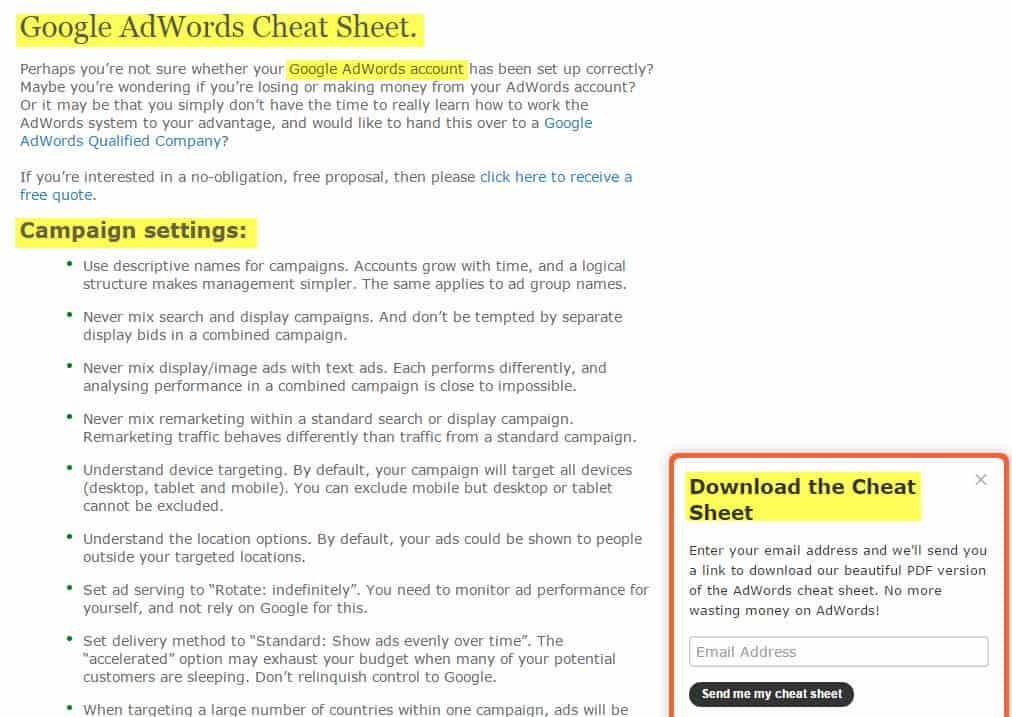Most people have some expectations of what awaits them when they arrive on a website.
On our own site, for example, we primarily provide services related to AdWords and SEO. When I look at the keywords that bring people to our content, there are of course some words and phrases that are less targeted than others, but the majority are relevant to what we do.
So when we first arrive on a web page, we instinctively seek reassurance that we’re in the right place. If those signals aren’t there, we don’t persevere and look for more compelling evidence, we just leave.
For example when someone searches for “adwords cheat sheet” and arrives on the relevant page on our website, they see the following (without the highlighting):
When they scan the content, they instantly understand that they’re in the right place to find what they’re looking for.
A picture of a golden retriever wearing a headset, although more charming, won’t really have the same effect.

So human visitors are heavily influenced by the text and images on a page. But what about the search engine spiders?
We already know that they are primarily interested in the words on a page, so in the same way that human visitors are reassured by the text, so too are search engine spiders.
But spiders are merely gatherers. They’re not particularly clever, and they’re certainly not as clever as (some of) the visitors to your website.
So they need a little guiding. The spiders that is. Actually the visitors too.
This is where Real SEO connects beautifully with common sense.
If Google can see that a significant number of other pages on your website are related to your content, this is significant.
If Google can see other websites that are related to your content linking to your website, that sends a good signal too.
If Google see that many or most of your visitors search for terms related to your content, and then stay on your website for some time (ideally engaging with it too) this is even better still.
Conversely, think of the signals sent if your other pages have no connection to the page’s content, links come from unrelated websites, and visitors bounce within a few seconds of arriving.
I do believe that SEO is becoming less dependent on keywords, but let’s not forget the obvious: that keywords are, after all, just words. And it’s going to be a long time before Google have any reliable alternative to analysing the words that you use on your website.
If you think of your language, words and content as the main criteria for Google to understand you, and the above factors as amplifiers, you can only be moving in the right direction.
If you like this idea and want to learn more, I will be holding a series of short webinars on how to apply Real SEO to your website starting on January 27th. You can sign up here.
Unique ideas for your business
The Demystifier puts practical ideas into your hands. You won't find them elsewhere. Original, actionable and insanely effective.




